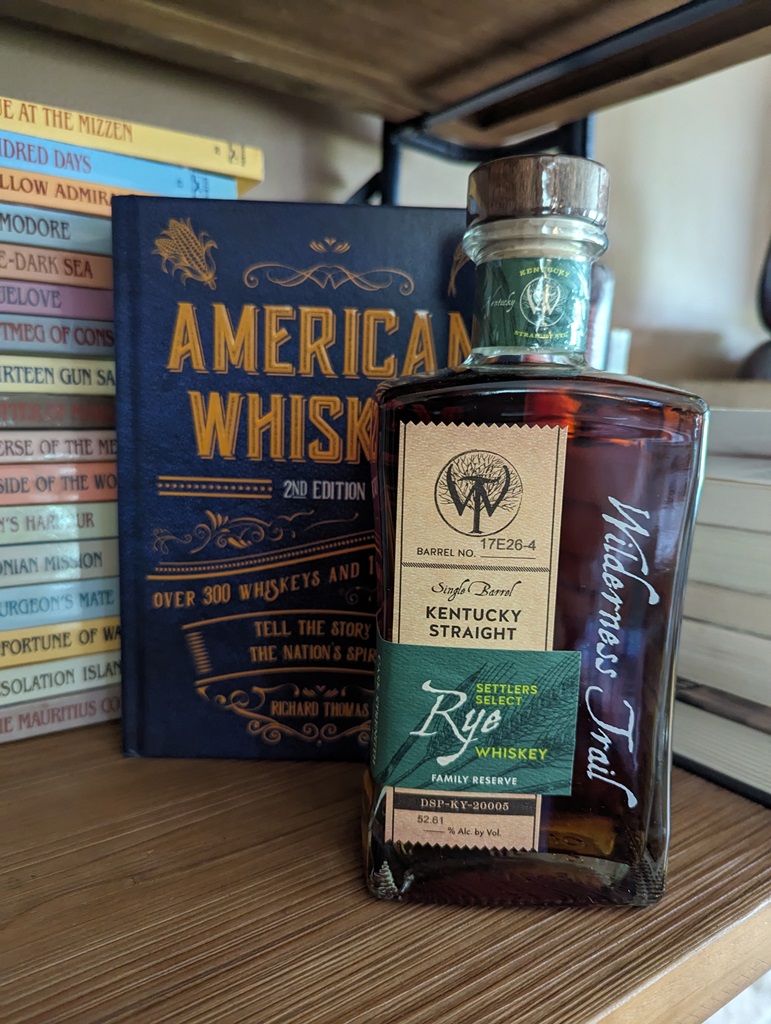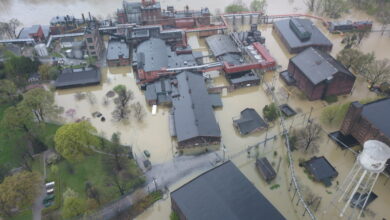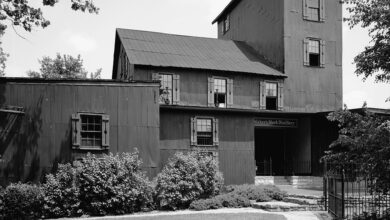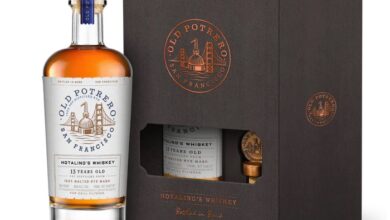Busting Canadian Whisky’s Five Biggest Myths
By Richard Thomas

(Credit: Public Domain)
Canadian Whisky occupies an odd place with world drinkers. The whisky from the Great White North is one of the five classic national whisky styles, along with Irish, Scottish, Japanese and American. Canadians have their own unique methods and big Canadian brands have an international presence. Yet at the same time, Canadian Whisky is perhaps the least understood of the big five, which is especially peculiar when one considers Japanese Whisky was almost unknown outside of Japan until the last decade. Meanwhile, people around the world have been guzzling Canadian Club and Crown Royal!
Well-known and yet also poorly understood, Canadian Whisky is the category drinkers seem to know the least about. The stuff is beset with myths, misinformation and half-truths in the popular imagination, making Canadian Whisky a ripe subject for some mythbusting.
Canadian Whisky Is Like Scotch, With Multi-Distillery Blends
The mention of the word “blending recipe” in connection with Canadian Whiskies must have conjured up Blended Scotch Whisky in some imaginations. Scottish blends are made with malt and grain whiskies coming from several different distilleries, in some instances dozens of them. The Canadians don’t do that, if for no other reason their production model means a single distillery produces all the flavor profiles desired for making their whiskies.

(Credit: Canadian Club)
Canadian Whisky Got Big Because Of Bootlegging
Although the popular image is that Prohibition brought a wave of Canadian Whisky washing illicitly into the United States, this becoming literal in the opening sequence of Boardwalk Empire, the reality is that bootlegging never even remotely took up the slack following the loss of the legal American market. The Irish Whiskey industry suffered similarly. During the Prohibition period, a fellow named Harry Hatch managed to buy up four of Canada’s five biggest distilleries, a sure sign those properties were going for cheap, hardly a measure of boom times.
Canadian Whisky Is All Rye
Because the terms “Canadian Whisky,” “Rye Whisky,” and “Canadian Rye Whisky” have always been used interchangeably in Canada and are even defined as interchangeable under Canadian law, folks understandably believe all whisky from Canada is made with rye grain. However, the earliest Canadian whiskies were made with wheat, and it was only later when some rye was added as a flavoring grain, and even then it was only the use of rye that became widespread, not predominant.
If you look at how Canadian Whisky is actually produced, the notion of all of it being made with rye becomes ridiculous. Canadian distilleries mash, ferment and distill uni-grain whiskies made from rye, wheat, corn and barley and use them as ingredients in blending recipes. Sure, there are plenty 100% rye whiskies aging in Canadian warehouses… and 100% wheat, corn and malt whiskies too.
If It’s Not Rye, That Is Because It’s Brown-Colored Vodka
If someone isn’t saying Canadian Whisky is all-rye, then they are usually saying it’s just colored vodka instead, and usually cheap colored vodka at that. The probably stems from the way Canadians distill some of their whiskies to a very high proof, higher than is the norm in all other whisky-making countries. However, nothing that goes into any Canadian Whisky can be a neutral grain spirit, i.e. vodka. Given that some companies out there are making barrel-aged, actually brown vodka noawadays, well, you can compare that against even a cheap Canadian Whisky and see for yourself the two have only alcohol in common.

(Credit: John Rayls)
Alright, It’s Not Brown Vodka, But It’s Still All Cheap Swill
Really? I suppose that is why Crown Royal is just as heavily marketed as Maker’s Mark in my hometown of Lexington, Kentucky, in the middle of Bourbon Country. The stuff sells well here, and a bottle of it costs as much as a bottle of Maker’s, so it’s hardly cheap. I imagine that it’s cheap swill explains how WhistlePig built its brand using a 10 Year Old 100% Rye Whisky imported from Alberta.
Sure, there are cheap, swill Canadian whiskies, just as there are cheap, swill Scotch Whiskies and Bourbon Whiskeys. But there is plenty of good stuff north of the border, and some great stuff too.





Niice article! I’ve never understood the condescending attitude ‘afficionados’ have for Canadian whisky. For one thing they really are masters of blending: as good as any. On another note I’ve wanted to try something from Glendory (spelling?) distillery for a while but I don’t thing their available in the USA.
Cape Breton Nova Scotia”s Glen Breton distillery produces several of the finest single malt whiskies in the world under the banner of Glen Breton and was North Americas first single malt whisky distillery. The products have multiple medals internationally and with two of the worlds top 70 golf courses within a 15 minute drive it is a destination for the worlds top whisky connoisseurs as well as golf fans.